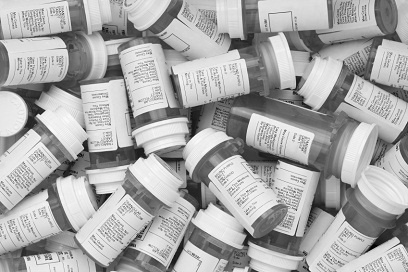
As the nation’s leaders in the war against prescription drug abuse met this week in Orlando, scientists in labs across the country continued efforts to make the most abused drugs “unabusable.”
Although much of the National Rx Drug Abuse Summit focused on what government agencies, law enforcement officials and medical practitioners can do to curtail abuse, those leading key summit sessions acknowledged that pharmaceutical science may offer the best remedy yet.
Reformulating commonly abused drugs in novel ways that reduce abuse needs to be part of the solution, said Nora Volkow, director of the National Institute of Drug Abuse, in a keynote address at the three-day conference, which ended Thursday.
Many pharmaceutical companies have made strides in tackling what the
Common deterrents for misuse include foiling the ways abusers tamper with pills.
Two years ago, Purdue Pharma, based in Stamford, Conn., released a new version of the painkilleroxycodone that defies crushing and cutting, common ways drug abusers tamper with the prescription drug to enhance its affect.
“It’s still a tablet,” said Libby Holman, spokeswoman for the pharmaceutical. “We’ve just made it harder to misuse and abuse, by making it much more difficult to prepare for snorting or injecting.”
Acura Pharmaceuticals has developed two technologies to slow down abusers, said CEO Bob Jones. One is by incorporating a polymer that, when an abuser tries to dissolve the drug to inject, turns the product to gel so it won’t go through a needle.
The second way is by formulating the product so that when it’s crushed and snorted it creates such intense nasal irritation that “abusers won’t want to do it twice,” said Jones.
That technology, called Aversion, has debuted in its first FDA-approved application in Oxecta, an immediate-release oxycodone product. The company plans to extend the application to other, even more widely prescribed painkillers, such as Percocet and Vicodin, said Jones.
The company’s Impede technology limits how much methamphetamine abusers can extract from pseudoephedrine, a common over-the-counter nasal decongestant sold as Sudafed.
Abusers use the household cold remedy to cook up methamphetamine in makeshift home labs, said Jones. Impede cuts the yield in half, said Jones, for the product that is not yet on the market.
Other unabusable drug methods companies are using include creating pills that are the consistency of gummy bears, so too soft to crush, or that have particles too tiny to crush, said Jones. Other drugs are being reformulated so they won’t work unless they come in contact with digestive enzymes in the stomach.
“They must break down in gut, so they’re useless if snorted or injected,” he said. Others release an agent when crushed that makes them impotent.
Although many pharmaceutical representatives, including one from Purdue, attended the summit, none presented or exhibited, said Dale Morton, conference spokesman. “We deliberately avoided pharma money because we didn’t want there to be any appearance that this meeting was biased in any way. Many consider pharmaceutical companies to be part of the problem.”
Although those who attended the summit see companies creating new drug formulas as part of the solution, many other parties will also need to take an active role, said Morton. Doctors, the government, pharmacies, distributors, law enforcement, the insurance industry and public health educators all need to get involved.
“We won’t change human nature by mixing a few ingredients into our tablets,” said Jones, of the pharma labs’ collective efforts. “But if we make some headway, we can keep people out of the hospital and out of the morgue.
“This is the right thing to do.”
